Today is International Women’s Day, and one lawyer has taken it upon herself to remind all women out there that self-care is just as important as achieving goals and taking care of others while shedding light on her experience surviving 9/11 and opening doors to forgotten victims.
Sara Director lives by her last name’s meaning as a trailblazing lawyer who has taken the responsibility of overseeing thousands of 9/11 victims and changing the way female survivors of the tragedy are treated.
The 46-year-old partner at Barasch & McGarry, an office that happens to be located in the shadows of where the Twin Towers were, has played an important role in getting uterine cancer recognized as the 69th 9/11-related cancer.
22 years ago, responders converged at the World Trade Center towers to aid in the aftermath of what would become one of the most-known terrorist attacks in history, with over 91,000 individuals assisting in the cleanup efforts amidst exposure to toxic substances, raising concerns about their long-term physical health.
In 2011, as part of the James Zadroga 9/11 Health and Compensation Act of 2010, the U.S. Centers for Disease Control (CDC) launched the World Trade Center Health Program, a commitment to provide free medical care for 9/11-related conditions to all responders and survivors until the year 2090, as per the American Association for Cancer Research.
But an initial focus on first responders meant that most cancers recognized had been observed in men, forgetting the thousands of women present that devastating day and, therefore, forgetting cancers that only affect female-born individuals. That’s when Sara had an “aha moment.”
“I saw the list [of 9/11 cancers], and every male cancer was on there,” the lawyer told Bored Panda in a video call.
Breast cancer was on the list, a disease that affects a majority of women but can also affect men, which might’ve been a reason it was included in the CDC list in the first place.
Nevertheless, up until last year, uterine cancer, which is a strictly female disease, was excluded from the list.
“Something is wrong. Women are not being considered, women are not being heard, and change needs to happen,” Sara thought upon realizing the issue at the time.
Sara Director advocates for women’s health, shedding light on 9/11-related uterine cancer
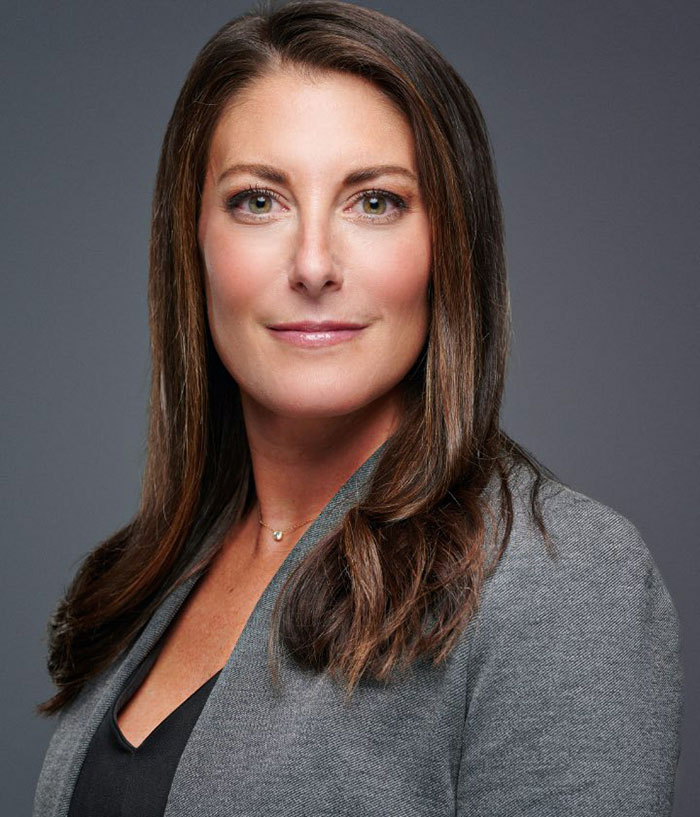
In January 2023, uterine cancer became recognized by the CDC, which meant that women who were in Lower Manhattan between September 2001 and May 2002 became eligible for free health screenings, treatments, and reimbursement for money already spent on medications, surgeries, and other medical expenses through the World Trade Center Health Program.
“Ensuring that all female cancers were included took a very long time, and the reason for that is because when the initial medical scientific studies were done, they were looking at first responders who responded to 9/11, majority of whom were men,” Sara explained.
The lawyer continued: “But this study didn’t take into consideration that half the 9/11 population is actually female.
“It’s not just first responders who breathed in and lived in the toxins for the next eight months after 9/11.
“It was anyone who lived, or worked, went to school, on Low Canal Street.”
Thanks to Sara’s work alongside her team, female victims of 9/11, as well as their family members, can now use that certified 9/11 illness to file claims for compensation covering lost wages, pain and suffering, and, in the worst case scenario, wrongful death from the Victim Compensation Fund.
“It took almost two decades to have women’s voices be heard and to compile the information to connect the dots between uterine cancer and 9/11 toxins,” Sara recalled.
Sara’s personal experience with 9/11 shaped her legal career
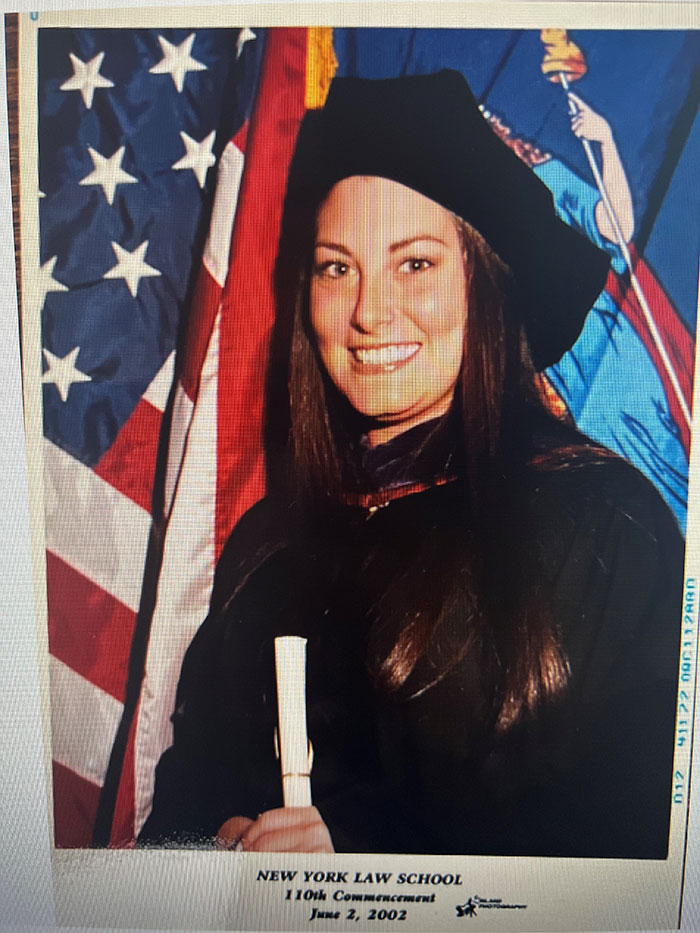
Sara’s law firm has been advocating for the 9/11 community, representing more than 40,000 first responders, survivors, and victims’ families.
The cause has been close to her heart as a 9/11 survivor herself. Sara attended law school just blocks from Ground Zero.
Her 9/11 story has remained vivid in her mind, as she witnessed one of the Twin Towers on fire upon exiting the subway at Chambers Street and then watched as the second plane hit before escaping with her fellow New Yorkers.
“That day certainly changed my life, in that I’ve dedicated my legal career to helping the community I’m a part of, advocating for the community, not just women, but the whole community,” Sara admitted.
She further described the traumatic event: “Having been there, it was like watching a movie.
“Many of our clients say the same thing. You could not believe your eyes. Frozen in time, not knowing what to do.”
As she continually met more and more women who were in Lower Manhattan who were being diagnosed, not just first responders but classroom teachers, secretaries, waitresses, retail workers, residents, and more, she and her firm pushed for the CDC to add uterine cancer to the 9/11 registry, waiting 20 years, while other rare diseases, like male breast cancer, made it onto the list first.
Sara wondered if women’s issues were given more weight when advocated by men, despite her supportive male colleagues in an inclusive workplace
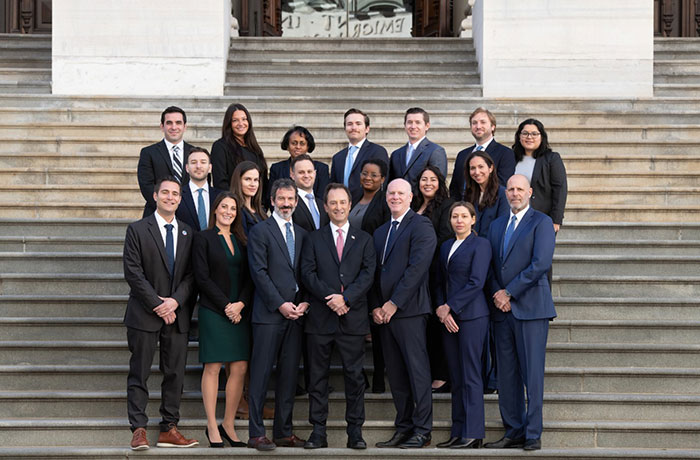
“I wanted to make sure women’s cancers are included because, God forbid, I’m diagnosed with uterine or endometrial cancer during my lifetime, I know that I’m going to receive treatment, and I can be monitored and I can get help through the CDC program,” Sara exclaimed.
She continued: “Having that peace of mind for myself, I know, also translates to hundreds of thousands of women also having that peace of mind.
“God forbid something happens to them, their families are going to be taken care of.”
Sara currently represents more than 350 women with 9/11-related uterine cancer, and she is on a mission to make even more women aware of this rule change because, to date, less than 10% of non-first responders have signed up for federal 9/11 programs.
These women have scattered all over the country, and the world, in the decades since 9/11, with some not realizing that they fit the criteria for eligibility.
“9/11 toxins didn’t discriminate that day,” Sara warned, adding that the toxic substances remained in the air for at least eight months after the terrorist attack.
The toxins primarily consisted of dust, smoke, and chemicals, including pulverized building materials, such as concrete, glass fibers, asbestos, lead, mercury, and other hazardous substances.
“There is still more work to be done. We can’t accept the double standard,” Sara said
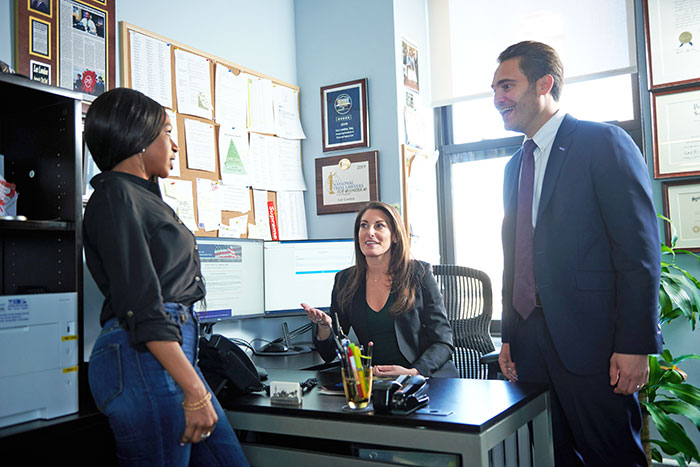
Despite enjoying an “inclusive” work environment with supportive male colleagues, upon being asked if she thought women’s issues were taken more seriously when spoken by a man, Sara replied: “I hope the days of that are over, [but] is it? No.”
She continued: “There is still more work to be done. We can’t accept the double standard.
“We’re talking about real women and families who are dealing with cancer and need support.”
Sara also admitted: “If a man needs to say it to get what we need, I don’t want that to be true, but I’ll do anything that I can do to support anybody that’s supporting the 9/11 community.”
The lawyer, who has described herself as a “real New Yorker through and through,” said she believed that the organization making the decisions for the community made a mistake by not including uterine and endometrial cancer earlier.
“But 20 years later, women’s voices are being raised up. We’re being heard, we’re being respected, we have a seat at the table,” Sara exclaimed. “And now that this cancer is being included, we’re finally on equal footing with the community.”
Sara described the amount of work her law firm had done “to educate women within the 9/11 community, to have their health checked, to not ignore signs that their health is failing, to take care of themselves.”
Women who were in Lower Manhattan between September 2001 and May 2002 are now eligible for free health screenings and treatments
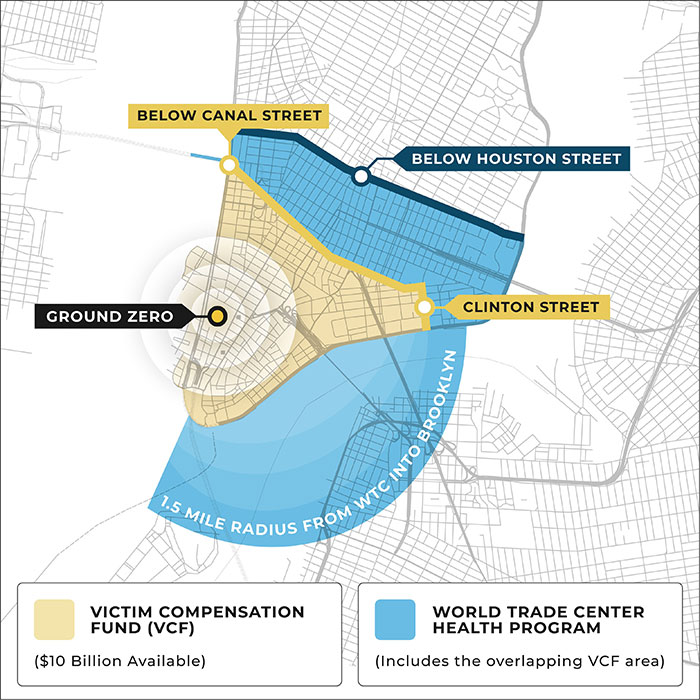
Speaking from the experience of being a working mother to two boys, aged 10 and 13, she added: “Women don’t always put themselves first. We’re stretched very thin” before emphasizing the importance of self-care.
“Women in the 9/11 community have to have at the back of their head that there’s something different about us,” she explained. “We were exposed to toxins. If we don’t go to our doctor’s appointments, if we don’t trust our guts that something is wrong, we might not be here to deal with our family, our work, and do all the things we love doing.”
She observed: “It’s a good reminder to women on International Women’s Day to take care of yourself.”
After being asked about what International Women’s Day represented for the pioneering attorney helping thousands of women in need, a moment of emotional silence filled the virtual space created during the interview.
“Some days, it’s really hard to be a woman,” Sara commenced. “And I celebrate how difficult it is, and I celebrate all that women do and overcome and face, and I celebrate the women in my life, my amazing friends, who are professional working moms, who take it all on.”
She continued: “We raise our children, we’re leaders in our business, leaders in our community.”
Sara had one last wisdom to share: “I say no one works harder than a busy woman.
“If you want something done, you give it to a woman who has a lot on her plate already.”
Finally, Sara expressed how thankful she was for her “female counterparts at work.”
“We definitely support each other and lift each other up, and that’s what women need to do more of. We need to celebrate our successes and lift each other up.”
Rare Uterine Cancer That Affects September 11th Victims Brought To Light By Inspiring Activist Bored Panda






